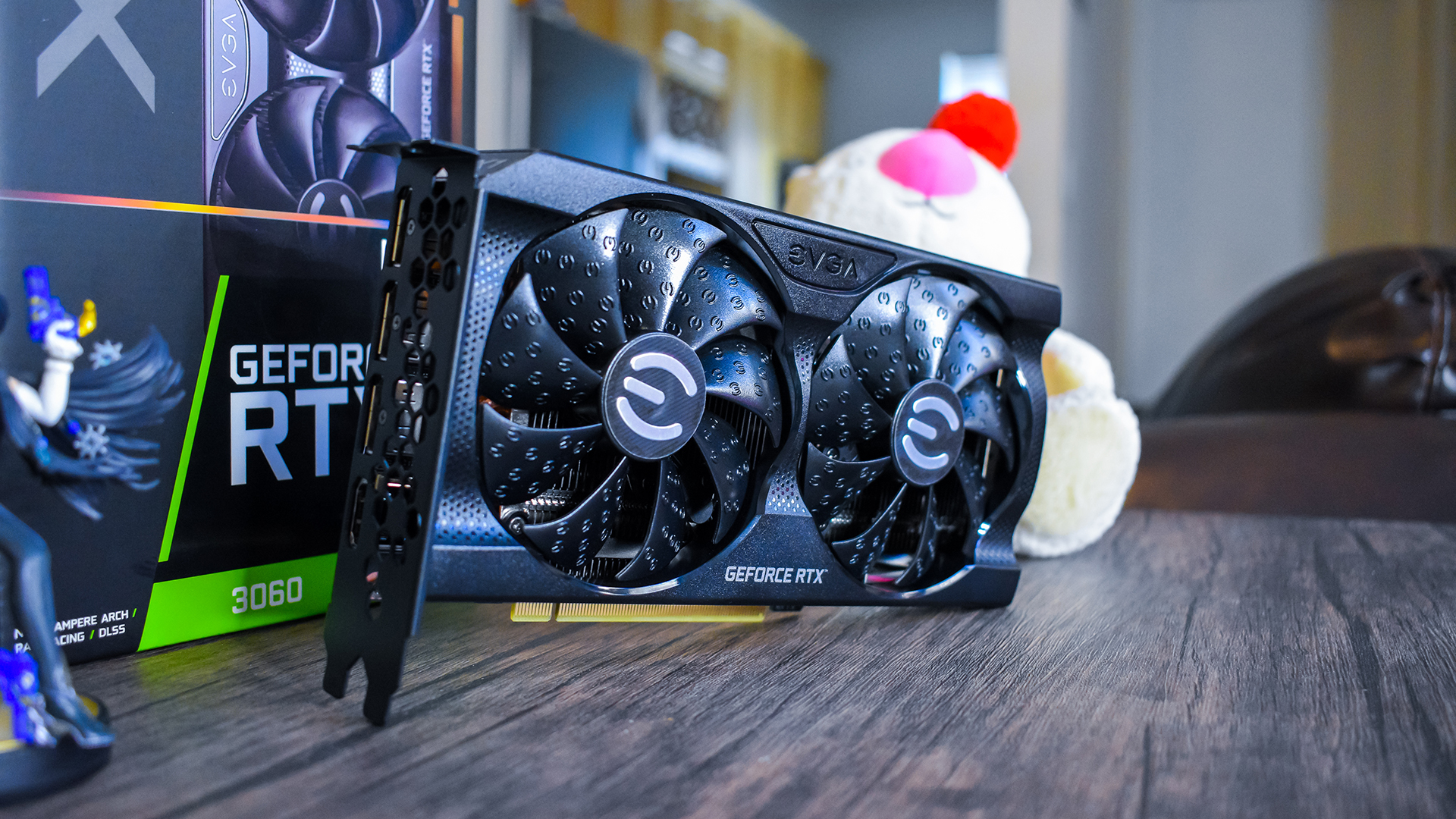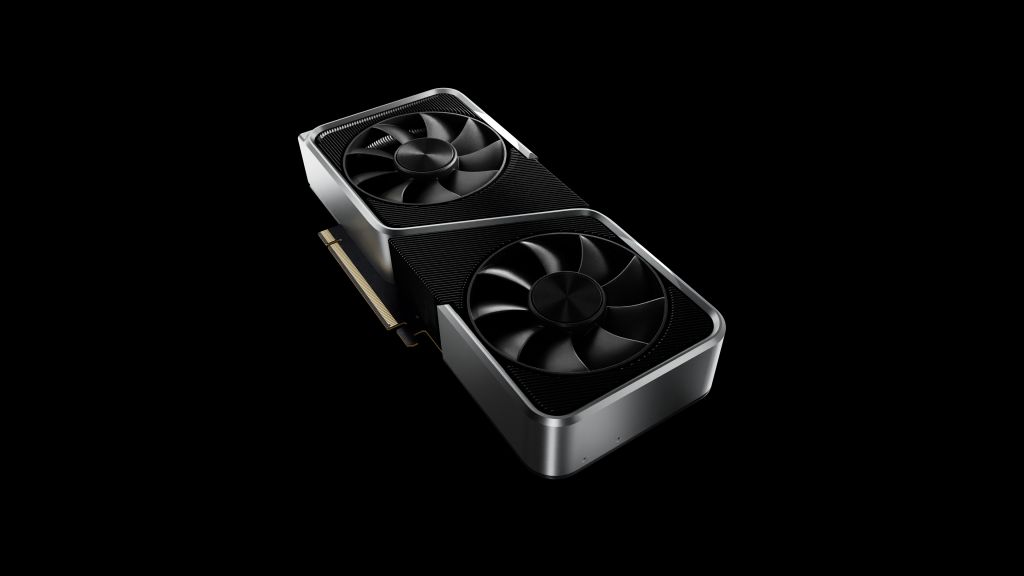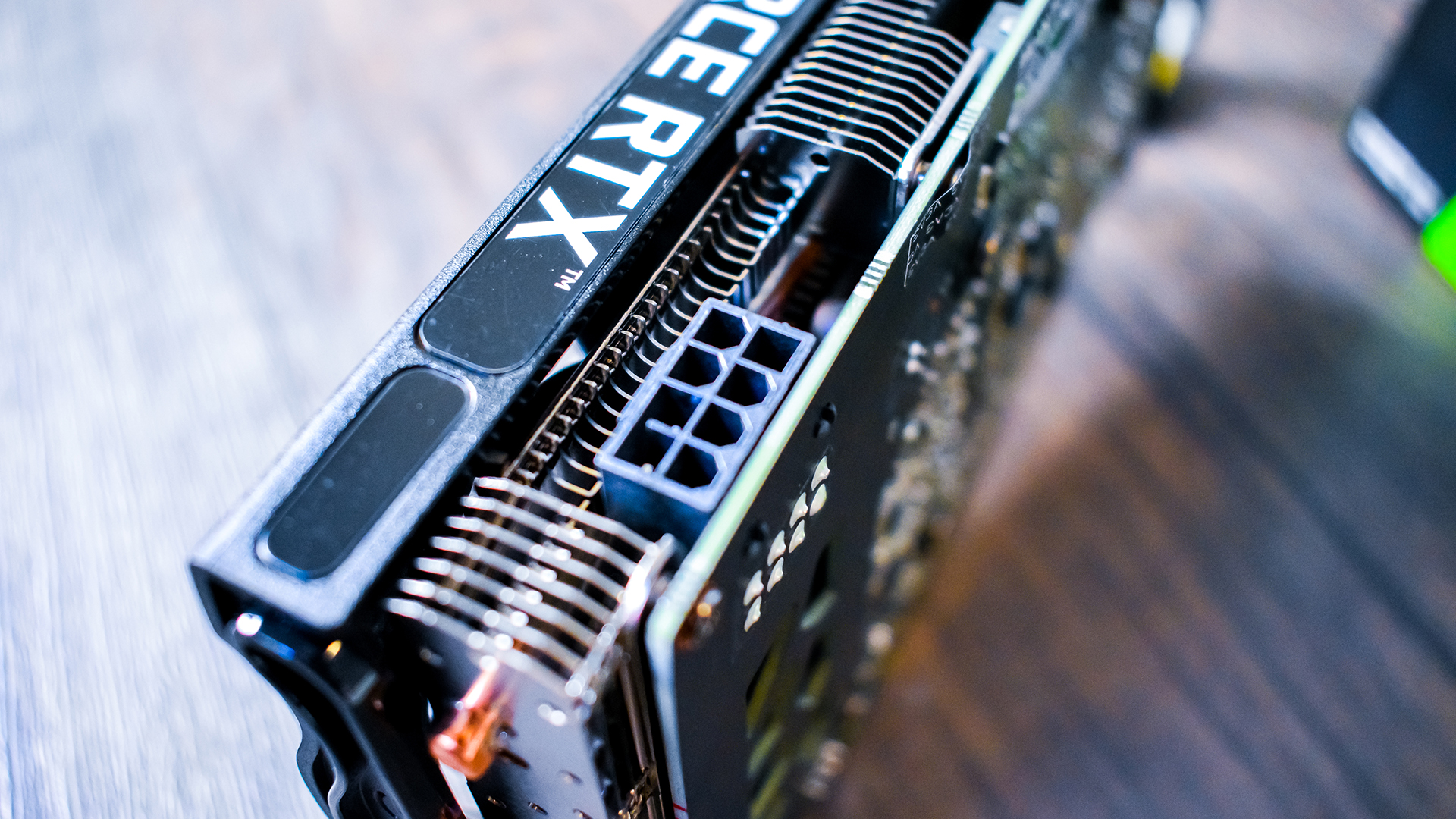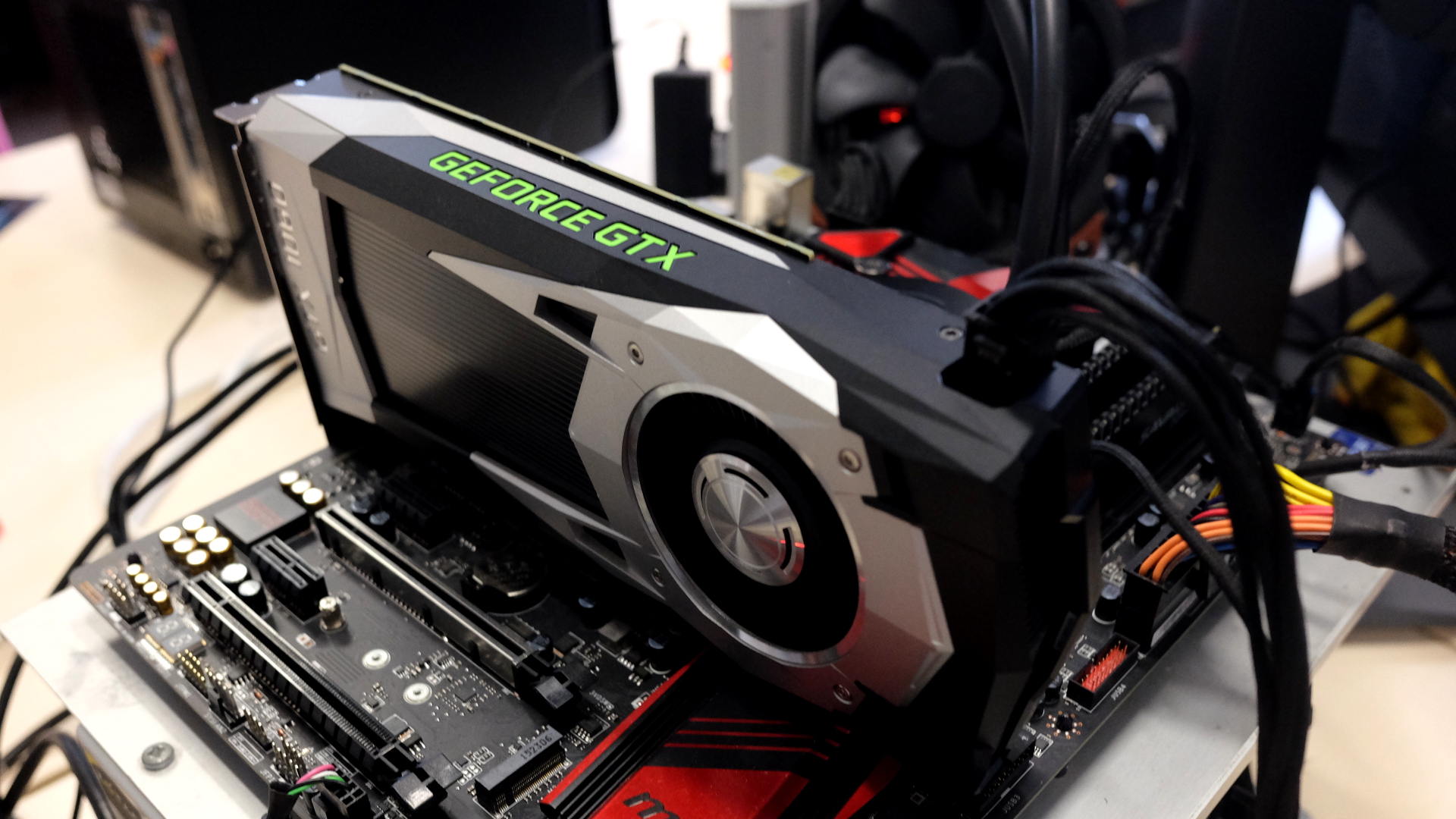Nvidia GeForce RTX 3060 vs GTX 1060: is it time to upgrade?
Has the enduring GTX 1060 finally worn out its welcome?

At CES 2021, Nvidia unveiled the new RTX 3060, bringing the Ampere architecture to its lowest price point yet. With it, Team Green is hoping to convince folks who have been faithfully using the Nvidia GeForce GTX 1060 for the last five years to upgrade to Ampere. But is it really the right time to upgrade? Well, as always, it’s complicated.
According to the latest Steam Hardware Survey, the Nvidia GeForce GTX 1060 is still the most popular graphics card among Steam users, with a full 9.38% of all Steam users sporting the aging graphics card.
This is a little misleading, as it’s dependent on independent Steam users, so communal PCs in places like LAN cafes are overrepresented – and since it’s optional, it doesn’t represent the entirety of Steam’s userbase (nor PC gamers in total). But, it’s still impossible to deny the popularity of that graphics card – and it's popular for good reason.
When the GTX 1060 came out, it was able to handle pretty much every game on the market at 1080p with high quality settings and solid frame rates. Five years later, that efficiency has started to wane, especially with new games that are also being released on the PS5 and Xbox Series X.
The Nvidia GeForce RTX 3060 has basically the same sales pitch, only this time you can add ray tracing and DLSS to the mix. But is it the right product for people holding on to their older cards?

Nvidia RTX 3060 vs GTX 1060 price
When Nvidia launched its RTX 2000 series of graphics cards based on the Turing architecture, the company faced a lot of criticism for substantially raising the prices across its lineup. Unfortunately, now that the RTX 3060 is here, it looks like that’s not going to change any time soon.
The Nvidia GeForce RTX 3060 is starting at $329 (£299, AU$729), making it the cheapest Nvidia Ampere graphics card yet. The closest right now is the Nvidia GeForce RTX 3060 Ti, which is a tad more expensive at $399 (about £299, AU$540).
Get daily insight, inspiration and deals in your inbox
Sign up for breaking news, reviews, opinion, top tech deals, and more.
When compared to the last generation, this falls largely in line with where you would find the Nvidia RTX 2060 Super and RTX 2060. Things change drastically once you look at the Nvidia GeForce GTX 1060, though.
Pascal-generation graphics cards were the last time graphics cards were affordable for a lot of people, with the Nvidia GeForce GTX 1060 starting at $249 for third-party cards, and $299 for Nvidia’s own Founder’s Edition. That means that the Nvidia GeForce RTX 3060 is nearly a hundred bucks or quid more expensive. If you don’t have more disposable income than you did five years ago when you bought the GTX 1060, the higher asking price for the Nvidia RTX 3060 could understandably be a deal breaker.

Nvidia RTX 3060 vs GTX 1060 specs
Once you take a glance at the Nvidia GeForce RTX 3060 spec sheet, that $80 jump in starting price might start to look a little less heinous.
The RTX 3060 has double the VRAM – we’re not counting the 3GB version of the GTX 1060 – at 12GB of GDDR6 memory on a 192-bit bus. For comparison’s sake, the Nvidia GeForce GTX 1060 6GB has, well, 6GB of GDDR5, also on a 192-bit bus. But that’s not what makes the RTX 3060 up to 2.2x more powerful than the GTX 1060.
Packed with 3,584 CUDA cores, 48 ROPs and 112 texture mapping units (TMPs), the RTX 3060 is a massive jump in raw silicon over the GTX 1060. The 2016 graphics card, by comparison, has 1,280 CUDA cores, 80 TMUs and 48 ROPs.
Along with a higher Total Graphics Power (TGP) rating of 170W vs 120W, the RTX 3060 is a much more powerful piece of hardware on paper. So, while the RTX 3060 is significantly more expensive this time around, you are getting an incredibly powerful graphics card, especially when you compare it with the GTX 1060.

Nvidia RTX 3060 vs GTX 1060 performance
A spec sheet might be fun to look at and say something like “hey, look, these numbers are higher than the other numbers”, but ultimately it doesn’t mean much if the real-world performance doesn’t match up. And, well, it kind of does here.
For our Nvidia GeForce RTX 3060 review, we tested the GTX 1060 against it, and found that the new card is up to 220% faster in some games.
One such game is Dirt 5, where at 1080p, the new RTX 3060 was able to pull 84 fps on Ultra High settings, while the GTX 1060 was stuck at 38 fps. That game is definitely a next-generation title, and it’s clear that the GTX 1060 starts to falter in today’s most advanced games. Red Dead Redemption 2 sees similar results, with the RTX 3060 pulling 53 fps to the GTX 1060’s 23 fps at 1080p. Similarly, in Watch Dogs Legion, even without ray tracing, the RTX 3060 pulls 60 fps, while the GTX 1060 is stuck at 29.
But even in older titles, where the GTX 1060 probably has the most faithful users, it’s still falling behind. In Final Fantasy XIV, an MMO from 2014 that continues to get more and more popular, the GTX 1060 is more than playable at 1080p with maximum settings, holding a respectable 96 fps average. That’s high, but the 164 fps average that the Nvidia GeForce RTX 3060 holds in the same game with the same settings sets it up for high refresh gaming, which is definitely useful in that game’s challenging Extreme Trials and Savage Raids.

Nvidia RTX 3060 vs GTX 1060: should you upgrade?
So, yeah, the GeForce RTX 3060 is way faster than the GTX 1060, but that should have been obvious – five years have passed since the 1060 came out, after all. But whether or not the RTX 3060 is the right graphics card for you is going to be complicated, and highly dependent on the games you play and how much money you have to spend on a graphics card right now.
If you’re just playing games like Destiny 2, World of Warcraft or Rainbow Six Siege and you’re happy with your performance, you probably don’t need to drop hundreds of dollars on a new graphics card. That obviously changes if you play these games competitively, but if you’re fine just playing the game with friends, your experience probably won’t fundamentally change just because you get 200 fps vs 90 fps.
However, if your favorite games are the ones you play yourself with the pretty eye-candy turned on, the Nvidia GeForce RTX 3060 starts to make more sense. Whether or not you’re on board with Nvidia’s ray traced future, games are getting harder to run, as naturally happens when a new generation of consoles comes out. Trust us, playing Cyberpunk 2077 isn’t going to be a great experience on 5-year-old hardware.
You can’t discuss any of this right now without talking about availability, though. Right now, graphics cards are selling out immediately, being sold through third party retailers and resellers for prices that are way higher than Nvidia intended. If you already have a working GTX 1060, and you’re getting by, it’s definitely not worth buying a new graphics card if it means paying hyper-inflated prices for it. The current stock situation will end eventually, it’s just a matter of time.
And, hey, maybe when GPU prices are reasonable again, Nvidia might put out a graphics card that falls within the same price window as the original GeForce GTX 1060 – and that will be an upgrade which will be much easier to recommend.
Jackie Thomas is the Hardware and Buying Guides Editor at IGN. Previously, she was TechRadar's US computing editor. She is fat, queer and extremely online. Computers are the devil, but she just happens to be a satanist. If you need to know anything about computing components, PC gaming or the best laptop on the market, don't be afraid to drop her a line on Twitter or through email.
